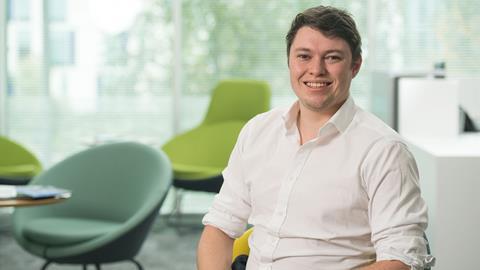Partner, Manchester
I am from a mining family. I was brought up keenly aware of the issues that can arise when a government is in conflict with citizens. I wanted to work for a better society. Promoting access to justice is a key part of that. I did my first work experience at a law firm when I was 13. I saw the challenges and rewards. After that, I had no doubts.
I went to Leeds University and then completed my LPC during the financial crash. After some time working as a chef, I started out as a welfare benefits adviser at Stephensons. Despite the Legal Aid, Sentencing and Punishment of Offenders Act 2012, I managed, with some difficulty, to get a training contract and ensured my seats were in areas connected with social justice. The timings of my LPC and qualification as a solicitor were pretty awful but I managed to get through it. It is as much about persistence and luck as talent.
During my LPC, the Equality Act was enacted and this was a real focus of my employment studies. Once you start analysing through the lens of the Equality Act, you realise how much discrimination there is out there and how little of it is challenged. Through my work in welfare benefits, I came across routine discrimination against disabled people. My view was that this was the area where I could have the biggest positive impact. The work cuts across many different areas, which keeps things interesting and intellectually challenging.
Greater Manchester Law Centre was born out of the campaigning work a few of us were involved in, focused on challenging LASPO. I was at the first public meetings aimed at setting the law centre up – that was about 10 years ago. I remember being enthused that we were no longer setting ourselves against something negative but were now creating something positive. I have continued to support them over the years in various ways. It is not just about offering pro bono advice to service users. It is also about speaking at events, promoting community work, and being there for staff to discuss cases and strategy. (We actually do not get that many referrals of pro bono work since GMLC got funding for the provision of employment advice. Historically, I used to do more but it is pretty infrequent.) With the loss of so many providers of free legal advice, it is crucially important that we support the law centres which provide a quality independent service to members of the public.
'I had naively believed that once I sent a letter setting out exactly how someone was being discriminated against then sense would prevail. I realised pretty quickly that even public bodies will fight these cases tooth and nail'
My earliest discrimination cases are the ones that will stay with me due to their eye-opening nature. I had naively believed that once I sent a letter setting out exactly how someone was being discriminated against then sense would prevail and changes would be made. I realised pretty quickly that even public bodies will fight these cases tooth and nail, and that you and your client need to be prepared to stick with it in order for the case to have a wider public benefit that goes beyond an individual settlement. I have been really lucky to work with some excellent clients who were prepared to put themselves through massive amounts of stress to bring about wider changes and ensure their experiences are not repeated.
One of the cases that had a profound effect on me was a discrimination claim I brought against the Department for Work and Pensions, which required a man with severe learning difficulties and anxiety to attend an appointment in person. For me and my barrister, the issues were clear and the solution stared us in the face. I had to fight to get public funding. Then it took 12 months of back and forth for the Government Legal Department to admit that the DWP had got it wrong. I had not expected that kind of resistance. It opened my eyes to how difficult pursuing discrimination cases would be and how important it is to stick at it even when your opponent seems determined to deny liability.
It was a bit surreal to be named solicitor of the year at this year’s Manchester Legal Awards. I never thought these types of award could be won by people working in social justice. It is great that Manchester Law Society values the work my colleagues and I do. If I was not surrounded by excellent people, I wouldn’t be in a position to win this award.
































No comments yet